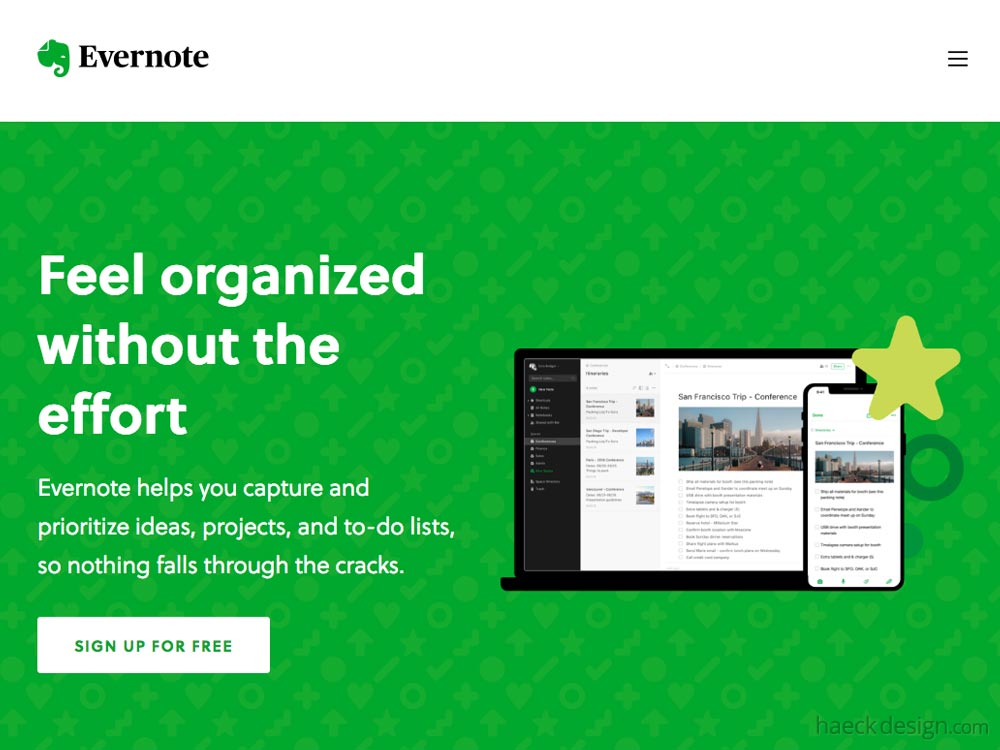


Keep things in here that you may need to access later for reference.

Reference – this is where all the Notes go that are too important to delete, but contain no actionable information. Pro Tip: Add context to your Next Action list by creating separate Notes by project, topic, or any other category you choose.ģ. Once you’ve processed the items in your Inbox, add any action items to a list in this Note. Next Actions – this is the Note in which your To Do list lives. Pro Tip: Begin the title with an asterisk to make sure it stays on top of the other Notes/Notebooks in the navigation pane.Ģ. Schedule some time, ideally every day, to process your inbox and decide on the appropriate next actions for each Note.

This way you can spend the appropriate amount of time reviewing each new item and deciding what to do with it when the time is right, not at the moment you find the article. Inbox – this is the default catchall for anything you send to Evernote. Power Users Have These 3 Notes/Notebooksįor beginners, limit yourself to these three categories until you gain a little more proficiency with the tool.ġ. You can apply as many tags to a note as you wish, though it is most useful to only use 1-3 per note. Tags - a secondary form of organization, which allows you to organize by context. Notebook Stack – Again, nothing too tricky here. Notebook – very simply, a collection of Notes. It is simply a single document containing text, images, or other documents. To begin, here are four key terms that you’ll need to know. In this post, we’ll dive a little deeper and explain the best way to use Evernote for marketing and project management and reduce the time spent searching on Google or other search engines. In my last post, I introduced Evernote as a valued tool for any inbound marketing professional to stay organized.


 0 kommentar(er)
0 kommentar(er)
